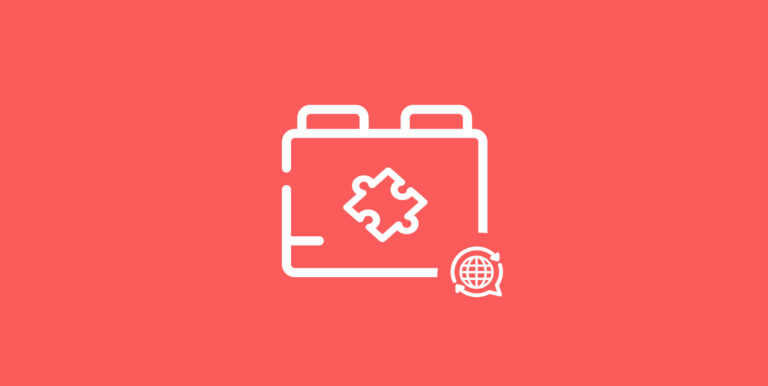Websites are invaluable assets for small businesses. They provide a platform to reach out to customers and showcase the products or services they offer. But creating, managing, and maintaining a website is no easy task. From security threats and hackers to keeping content fresh and engaging, a website can require lots of time and attention. As a result, there are many website challenges that businesses commonly face in their online operations. This article will explore nine of these obstacles and how you can overcome them.
Not Mobile Optimized
Did you know that over half of website traffic is through a mobile device? It’s not a big surprise if you think about the popularity of smartphones and tablets nowadays.
Small organizations often face challenges when it comes to properly optimizing their sites for mobile devices. Not keeping mobile device users in mind while designing a website can negatively impact the user experience, despite how good it may look on a computer.
Mobile optimization helps marketers get more insight into who is visiting their site, enables shoppers to buy products easily, and ensures customers using any type of device have an enjoyable browsing experience.
Not optimizing your website for mobile will hinder potential customer growth as well as lead to fewer conversions and sales. To avoid being left behind in today’s digital world, small business owners should prioritize creating websites compatible with multiple devices.
Downtime
Most every small business today has a website, but with increased web traffic comes the potential for server downtime issues. Long periods of downtime can cause serious problems for both the customer experience and user engagement.
To keep users engaged, businesses need to optimize their servers for peak performance in order to create a seamless experience. Unfortunately, small businesses with limited resources don’t always have an easy time resolving server downtime. Therefore it’s extremely beneficial to be aware of preventive measures and ways to avoid downtime in the first place.
Slow Load Times
It’s a well-known fact that slow load times significantly reduce customer satisfaction and overall website performance. Would you wait 10 seconds or more for a web page to load, or would you find another website instead?
It’s essential that all small business owners are aware of the causes of slow site speed. In particular, oversized images can greatly reduce a website’s loading speed due to the larger file size. Furthermore, an out-of-date plugin or poorly written code can lead to a frustrating customer experience during the checkout process.
Slow load time is a business website challenge that can be avoided by being diligent with regular maintenance and using plugins for website caching and image size optimization.
Poor Design
For small businesses, having a well-designed website is the key to success online. Unfortunately, many small business owners struggle with the challenges that come along with designing and building an effective website. Poor design decisions are often due to inexperience in web development, inadequate resources, or simply lack of time or effort.
These decisions can be costly and have damaging effects on these businesses, like high bounce rates for visitors and difficulty scaling for growth. Small businesses must be diligent about creating an attractive website if they’re going to succeed, as good design exponentially increases the chances of visitors staying on your page and converting into customers or leads.
Cyberattacks and Viruses
As a small business owner, there are various cyber threats you need to protect your site against. You might hear about the big companies making headlines after a security breach, but those aren’t the only ones vulnerable to attack. Small businesses can often face even more security challenges when trying to protect their website, as they may not have the resources or know-how required. Not only do these cyber attacks leave your business exposed to financial risks and loss of data, but they can also cause significant damage to your reputation.
That’s why it is essential that you stay up to date on the latest malware and viruses, invest in secure hosting protocols, and keep a regular check on your website for any suspicious activity. With the right protection measures in place, and by keeping your website up to date, you’ll be able to respond quickly, should any malicious software try and take hold of your website.

No Dedicated IT Support
Maintaining a website can be challenging for small business owners who lack dedicated IT support. Without dedicated IT support, it can be difficult to keep up with the changing technology and compliance landscape.
Businesses must invest in technology solutions that can help maintain intricate website details while owners and managers focus on other aspects of running the business. Outsourcing your IT support can be a great way of solving a majority of your business website challenges while keeping your website online and visible.
High Traffic Problems
High traffic is something all businesses strive for, but when it comes to the online world, there can be unpredictable and unidentified website challenges that occur as a result of large volumes of traffic. For small businesses, these problems can be even more daunting. Issues such as lagging servers, difficulty accessing content, or crashes can all occur. In addition, the traffic can expose security threats through malware and phishing attacks.
To help mitigate these risks, utilizing a content delivery network (CDN) and hosting your website on a scalable cloud or VPS platform are both wise steps in tackling the high traffic problems that come with having an online presence.
Cheap Website Hosting
Many small business owners make the mistake of thinking cheap website hosting is the way to go, but this can often lead to business website challenges that could otherwise be avoided. Poor performance, slow loading times, and increased security risks are all potential drawbacks, along with fewer features. The up-front savings may seem attractive, but losing customers due to a poor user experience can be devastating.
Fortunately, small businesses don’t have to sacrifice quality for price. There are plenty of quality options at affordable prices available today. It’s worth doing some homework and determining what kind of hosting best suits a company’s needs. After all, ensuring customer satisfaction online is paramount for a successful business.
Hardware and Software Failures
It can be disheartening for small businesses when their website fails due to hardware or software issues, as the costs of repairs and downtime can be substantial. Troubleshooting computers and networking equipment can feel like an insurmountable task, especially with limited time and resources. In these cases, it’s important to fully diagnose the underlying causes to quickly identify whether technical assistance is needed.
Fortunately, there are preventative measures that every small business should take to reduce the likelihood of future failures. Regular system maintenance helps protect against potential problems caused by outdated hardware or security issues. Researching reputable vendors for efficient hardware solutions is also crucial for success in resolving any current glitches or preventing them from occurring in the future.
Keep Your Website on Track with Liquid Web
The Liquid Web team will identify and block cyber threat activity using threat intelligence and vulnerability management. The Liquid Web team is committed to protecting your site, application, and content. We will monitor and manage your servers and networks and correct most issues before you even know what happened.
With the right planning and precautions, many of these risks can be minimized or even eliminated. Liquid Web dedicates itself to helping small businesses overcome any challenges they may face to maintain a successful online presence. Contact us to get started!





